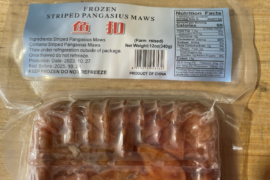With release of the US State Department’s 2014 Trafficking In Persons (TIP) Report expected this week, the Royal Thai Embassy in Washington, DC, has issued details about how Thailand has worked closely with the United States government “to satisfy all TIP office queries about on-going law enforcement action and statistics related to investigations, inspections, prosecutions and convictions in 2013.”
The efforts and progress made on this and other aspects, including trafficking prevention and victim protection, which help Thais and migrants alike, are contained in Thailand’s country report submitted to the State Department.
Meanwhile, US importers of seafood from Thailand are closely monitoring developments, concerned that the State Department might drop Thailand from Tier 2 to Tier 3 status in the TIP Report, which could result in the introduction of stringent non-tariff barriers on Thai shrimp and other seafood products.
Thailand has been on the Tier 2 “Watch List” for several years, in part because of alleged exploitation of Burmese, Cambodian, Laotian and other nationals said to be working without contracts on Thai-flagged fishing boats. Tier 2 countries are defined as those whose governments do not fully comply with minimum standards of the Trafficking Victims Protection Act, but who are making significant efforts to bring themselves into compliance.
Thailand ranks as the world’s third largest exporter of fishery products, after China and Norway. Exports of approximately 1.9 million tons of farmed shrimp, tilapia, tuna and other fish generated more than $8.8 billion in sales during 2012. As much as 85% of total shrimp production is typically exported.
The United States, which has historically been Thailand’s largest overseas market for seafood, bought approximately $1.2 billion worth of shrimp and prawns (primarily frozen) in 2012, and $594 worth of tuna (mainly canned). Keeping the pipeline open for such products is just as important for importers as it is for exporters.
“Thailand has made significant advances in combating human trafficking, working with our partners at home and abroad including neighboring nations, the US, the EU, international organizations and NGOs to implement preventive measures to protect and assist victims and, importantly, to bring human traffickers to justice. Human trafficking is one of the worst forms of human indignity, and Thailand is committed to eliminating this inhumane exploitation,” said H.E. Mr. Vijavat Isarabhakdi, Ambassador of Thailand to the United States.
Thai law enforcement statistics show significant progress in investigations, prosecutions and convictions of perpetrators, including 674 trafficking investigations by Thai officials in 2013 – more than double from 306 similar investigations in 2012, 483 trafficking defendants prosecuted in the Thai judicial system in 2013 – five times more than 93 similar prosecutions in 2012, and 225 trafficking defendants convicted and punished for their crimes in 2013 – a more than four-fold increase from 49 similar convictions in 2012. Investigation of Thai officials alleged to be complicit in cases related to human trafficking noticeably increased in 2013. At least 33 police and five high-ranking police officials were either punished or are now under civil and/or criminal processes.
The significant rise in 2013 human trafficking law enforcement numbers is directly attributable to elevated inter-agency collaboration within the Thai government, Thai law enforcement, intensified actions and a standardized methodology for tracking and reporting data. In late 2012, Thailand launched a highly collaborative and coordinated anti-trafficking effort led by the Ministry of Social Development and Human Security, National Anti-Trafficking in Persons Committee, Ministry of Labor, Department of Fisheries, Office of Attorney General, Department of Special Investigations, Royal Thai Police, Royal Thai Navy and Marine Police, as well as Ministry of Commerce and Ministry of Foreign Affairs.
“Thailand’s demonstrated awareness, cooperation and progress in combating human trafficking in 2013 clearly exceeds the U.S. State Department’s criteria for an upgrade on the 2014 TIP Report,” stated Ambassador Isarabhakdi.
Thailand has pursued a national strategy based on the 5P’s approach that encompasses Prosecution and Law Enforcement, Protection and Recovery, Prevention, Policy and Mechanisms to drive the policy, and Partnerships. In 2013, Thailand also ratified the United Nations Convention against Transnational Organized Crime and acceded to the Protocol to Prevent, Suppress and Punish Trafficking in Persons, Especially Women and Children.
“Enhanced actions of the Thai Government in anti-trafficking prevention and enforcement have led to significant improvement of the TIP situation in Thailand. In particular, tangible and positive results over the course of this past year confirm Thailand’s commitment to addressing this very complex problem and it also indicates that relevant agencies are working on the right track. Our effort is on-going and we shall continue to move forward towards the goal of ridding human trafficking from our country,” said Director General Songsak Saichuea, Ministry of Foreign Affairs. – JMS





